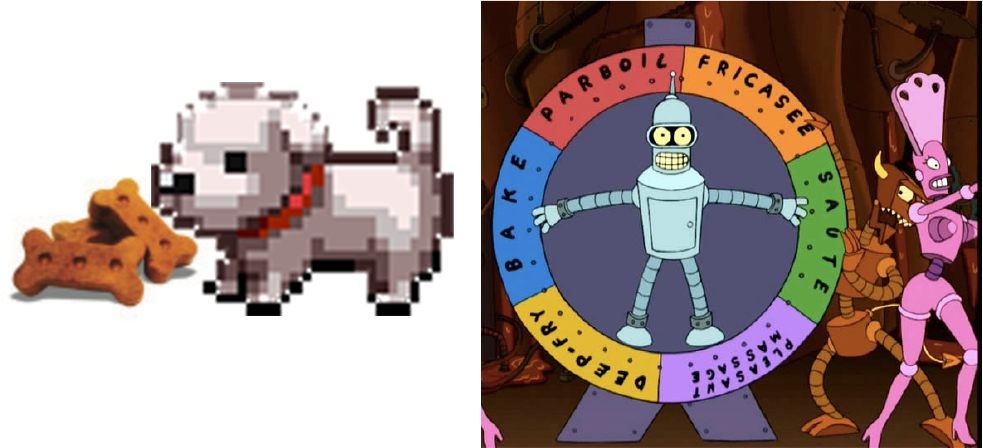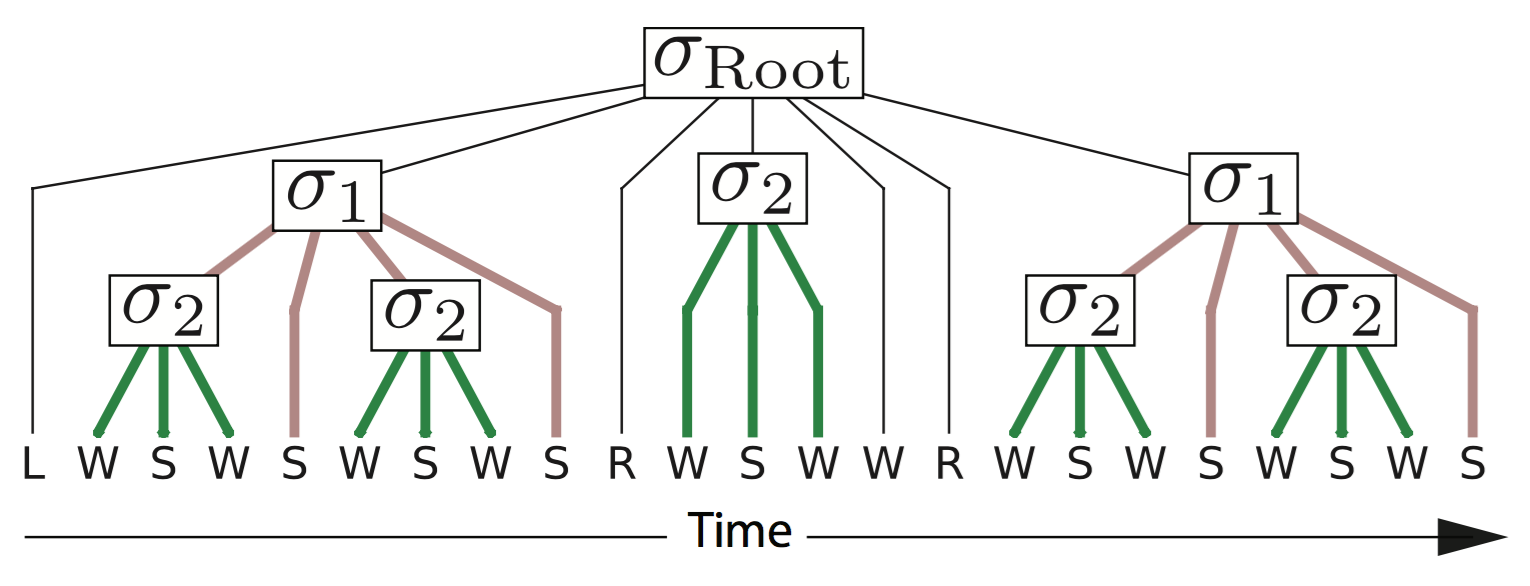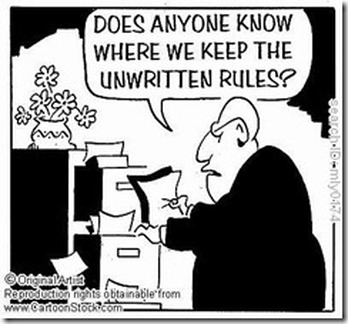Below are short summaries of my work organized into broad projects. You can also see Papers.
Observing someone's actions allows us to infer what they know, expect, want, or other mental states. Conversely, the person being observed could use their actions to show an observer what's in their head. This can occur during everyday teaching or in other social interactions and activities (e.g. miming).
We examine communicative demonstrations using a combination of computational models and experiments. In particular, we study how people optimally plan over observer belief transitions to accomplish communicative goals as well as how recognition of a demonstrator's communicative goals affects interpretion by an observer.

Two (non-human) agents receiving rewards/punishments
Social rewards and punishments are everywhere. They can occur between a parent and children or in other social interactions (even those involving non-humans), and they have been proposed as a way to teach artificial learners. But how exactly do people use rewards and punishments to influence another's behavior?
It is often assumed that people use rewards and punishments to shape others' behavior (e.g. in the sense of operant conditioning). However, through a combination of computational and emprical studies, our work argues that people do not reward and punish in this manner. Rather, rewards and punishments tend to be used communicatively to signal information. This insight motivates a new perspective on human social learning as well as new interactive machine learning algorithms.

When we observe someone else's behavior, we can often infer how they represent a task. This requires the observer to have a rich theory of an actor's unobservable mental structure.
Using ideas from computer science and reinforcement learning, we examine how people and computers can interpret others' behavior in terms of rich representational structure.

Norms are often represented abstractly rather than in terms of low level actions. How are these abstract social representations learned through interaction?
Using the framework of multi-agent reinforcement learning and multi-participant experimental paradigms, we explore how people learn and use abstract norms. In particular, we examine norms of cooperation/competition as well as behavioral norms that can arise in fully collaborative settings where people must work together to achieve a shared goal.
Last updated: Mon 01 October 2018
Copyright © Mark Ho 2016-2023. Theme based on Pelican-Hyde.